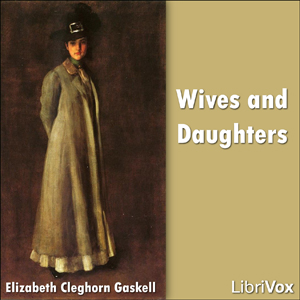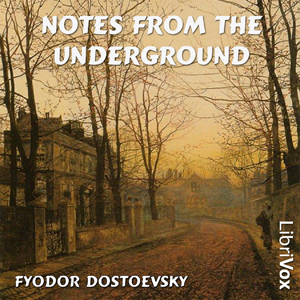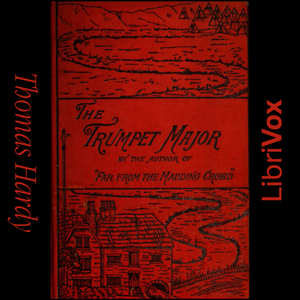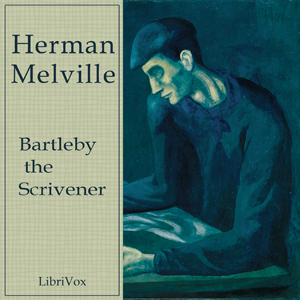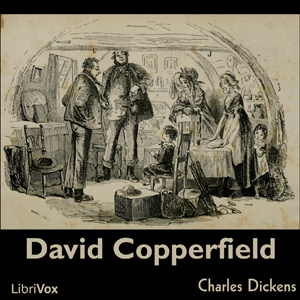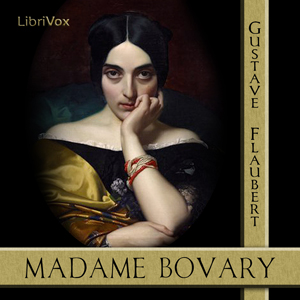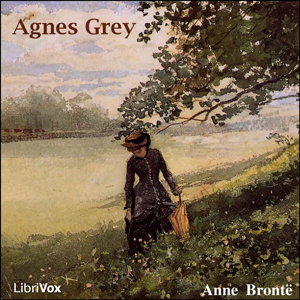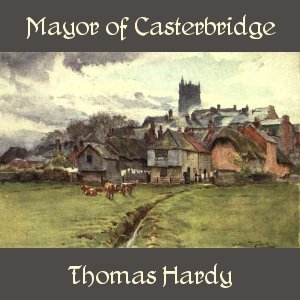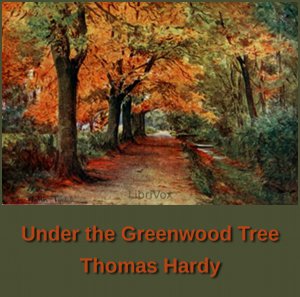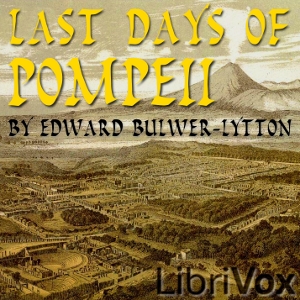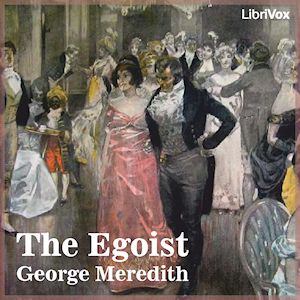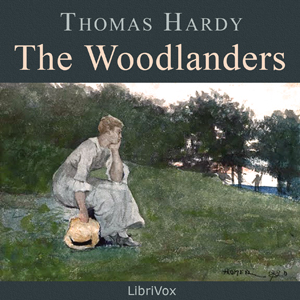If you like Jane Austen, you will probably like this book!Mrs. Gaskell, as she was often referred to, is considered one of the greatest British novelists of the Victorian era. She was one of the earliest novelists ever to use dialect in her works, finding often that no word but the vernacular would suffice to convey the meaning she wanted to achieve. She was the author of The Life of Charlotte Brontë, a much-acclaimed and sometimes-reviled biography of her friend and peer.Wives and Daughters revolves around Molly Gibson, only daughter of a widowed doctor living in a provincial English town in the 1830s. The novel was first published in the Cornhill Magazine as a serial from August 1864 to January 1866. When Mrs Gaskell died suddenly in 1865, it was not quite complete, and the last section was written by Frederick Greenwood. (Summary from Wikipedia)
61 episodes
Fyodor Dostoyevsky’s short masterpiece about a ranting, slightly mad civil servant. The stylistic inventiveness, and the insights into the absurdities and weakness of humans seem so fresh and incisive today that if published now (a century and a half later) Notes would be considered an avant-garde post-modernist triumph. In some ways this is a heavy text, laden with conversational philosophizing; but the vividness of the narrator make it a wonderful read, and funny.
(Review by Hugh McGuire)
20 episodes
Silas Marner (originally published in 1861): Betrayed by a beloved friend and accused of a crime he didn’t commit, awkward Silas Marner is expelled from his beloved religious community — the only community he has ever known. He exiles himself in the remote village of Raveloe. Friendless and without family, set apart from the villagers by their superstition and fear of him, he plies his weaving trade day after day, storing up gold which becomes his idol. When his gold is stolen, he is rescued from despair by the arrival on his lonely hearth of a beautiful little girl, whom he adopts, and through whom he and the other people of the village learn that loving relationships are more fulfilling than material wealth. (Summary by rachelellen)
22 episodes
Die Erzählung “Kleider machen Leute” erschien 1874 im zweiten Band des Novellenzyklus “Die Leute von Seldwyla”.
Ein arbeitsloser Schneidergeselle darf unterwegs in einer vornehmen Kutsche Platz nehmen. Der im kleinen Orte Goldach dem herrschaftlichen Wagen entsteigende Schneider wird vom Kutscher als Herr aristokratischer Herkunft ausgegeben. Der Schneider, der durch sein melancholisches Aussehen, vor allem aber durch seinen kostbar wirkenden Mantel und seine Pelzmütze Aufsehen erregt, gilt bald als ein polnischer Graf, den die Goldacher Bürgerschaft bewirtet und feiert. Er fördert das Mißverständnis nicht von sich aus, findet aber auch nicht den Mut, es aufzuklären. Umsoweniger, als sich die Tochter des Amtsrates in ihn verliebt… (Zusammenfassung von Stefan Schmelz)
3 episodes
This is the second in Trollope’s ‘Barsetshire’ series of novels. The later novels in the series move away from Barchester itself but 'Barchester Towers' is very much a sequel to the first book ‘The Warden’, which is also available from Librivox.The old bishop dies, the archdeacon, Dr. Grantly fails to succeed him and a new bishop, Dr. Proudie is appointed. Dr. Grantly gains a worthy foe, not the new bishop but his wife, Mrs. Proudie, strict sabatarian and power behind the Episcopal throne together with the bishop’s chaplain, Mr. Slope.John Bold is also dead and Eleanor, now a wealthy young widow sets clerical hearts fluttering. The new bishop must deal with the wardenship of Hiram’s Hospital. Will it go to Mr. Harding? All is to play for. Then the old Dean dies and the stakes are raised. (Summary by Andy)
53 episodes

Emilie Flygare-Carlén var under 1800-talet en av Sveriges mest populära och lästa författare.En Nyckfull kvinna, som gavs ut i fyra delar, har den unga Edith Sternfelt som centralgestalt. Hon är på ytan en mycket självmedveten, självsäker och nyckfull kvinna, men bär samtidigt på en stor osäkerhet. I första delen, Den obundna flickan, presenteras läsaren/lyssnaren för en rad personer som har viktiga roller på olika sätt. Av dessa är ”farbror Janne”, Ediths döde fars bror, en framträdande person. Han kallar sig ”en man av ränseln” och trivs bäst när han får göra strövtåg genom landet i sällskap med sin lille kortväxte följeslagare Primus. Janne är en både ömsint och vis man, och har ett gott öga till sin brosrdotter, som står hans hjärta nära, även om han är oroad över hennes nyckfullhet. Modern, hovrättsrådinnan, änka och ägare till det stora bruket Dagby i Värmland, styr med fast, och ibland något despotisk, hand sina underlydande, och försöker även styra sin äldsta dotter. Hon är är både oroad och förtretad över hur Edith avvisat en lång rad friare, och planerar, utan Ediths vetskap, att presentera henne för en lämplig kandidat, en greve. Samtidigt pågår en konflikt i Ediths inre. Hon dras alltmer till den nye unge bruksförvaltaren, herr Helmer, något hon försöker att förneka för sig själv och omvärlden, genom att vara högdragen och nedlåtande mot honom. Kring dessa rör sig också en rad andra personer som kommer att påverka varandra och den fortsatta historien. (Sammanfattning: Lars Rolander)
En nyckfull kvinna - del 2 - Fästmön
En nyckfull kvinna - del 3 - Hustrun
En nyckull kvinna - del 4 - Modern
18 episodes
The Brothers Karamazov (Russian: Братья Карамазовы) is the final novel by the Russian author Fyodor Dostoevsky, and is generally considered the culmination of his life's work. The book portrays a parricide in which each of a murdered man's sons share a varying degree of complicity. The Brothers Karamazov is a passionate philosophical novel that explores deep into the ethical debates of God, free will, and morality. It is a spiritual drama of moral struggles concerning faith, doubt, reason, and modern Russia. Since its publication, it has been acclaimed all over the world by thinkers as diverse as Sigmund Freud, Albert Einstein, and Pope Benedict XVI as one of the supreme achievements in literature.
(Summary by Wikipedia)
96 episodes
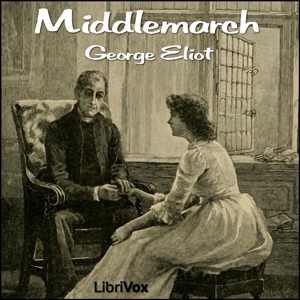
The book examines the role of education in the lives of the characters and how such education and study has affected the characters. Rosamond Vincy's finishing school education is a foil to Dorothea Brooke's religiously-motivated quest for knowledge. Rosamond initially admires Lydgate for his exotic education, and his intellect. A similar dynamic is present in Dorothea and Casaubon's relationship, with Dorothea revering her new husband's intellect and eloquence. In both cases, however, the young wives' expectations of their husbands intellects are not reflected in reality.
Despite extreme erudition, Mr. Casaubon is afraid to publish because he believes that he must write a work that is utterly above criticism. In contrast, Lydgate at times arrogantly flaunts his knowledge, making enemies with his fellow physicians. He regards the residents of Middlemarch with a certain amount of contempt stemming from his belief that the townspeople are backwards and uninteresting. However, his education has not included tact and politicking, skills necessary in a small town but are seen by Lydgate as below him, the brilliant doctor. (summary from Wikipedia)
86 episodes
The novel has two main plots; one set in the real world at the time the book was published (the Victorian era), the other in the fictional world of Fairyland. While the latter plot is a fairytale with many nonsense elements and poems, similar to Carroll's most famous children's book Alice's Adventures in Wonderland, the story set in Victorian Britain is a social novel, with its characters discussing various concepts and aspects of religion, society, philosophy and morality. (Summary from Wikipedia}.
26 episodes
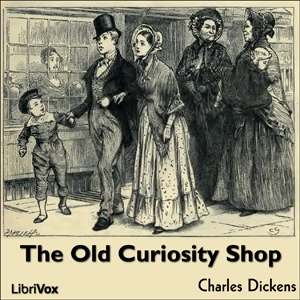
The Old Curiosity Shop tells the story of Little Nell, a beautiful and virtuous young girl who lives with her grandfather in his shop of curiosities. Her grandfather loves her dearly, and Nell does not complain, but she lives a lonely existence without friends of her own age. Her only friend is Kit, an honest young lad who works at the shop, and whom she is teaching to write. Unbeknownst to Nell, her grandfather is obsessed with their precarious financial position and is attempting to make Nell a good inheritance by winning at cards. He keeps these nocturnal activities a secret, but borrows heavily from the evil Quilp, a dwarf, in order to raise new capital. In the end, he gambles away what little money they own, and Quilp seizes the opportunity to take possession of the shop and make Nell's and her grandfather's lives a misery. Indeed, her grandfather suffers a breakdown, which leaves him bereft of his wits. Courageously, Nell decides to escape Quilp, and she and her grandfather run away to the country to live as beggars, travelling into the Midlands of England. There, then, follow the multifarious adventures of Nell and her grandfather, Quilp and his sly minions and accomplices, who would be Nell's vehement pursuers throughout the entire story, the noble schoolmaster, and many, many other personages as bright and memorable as Dickens' heroes always are. But... let us hear the story itself, shan't we? (Description from Wikipedia with additions by Euthymius)
73 episodes
Our heroine, Anne Garland, lives quietly in a rural community deep in the English countryside. However, the arrival of several regiments preparing for an expected invasion brings colour and chaos to the county. A graceful and charming young woman, Anne is pursued by three suitors: John Loveday, the trumpet-major in a British regiment, honest and loyal; his brother Robert, a merchant seaman and womaniser, and Festus Derriman, the cowardly son of the local squire. Set at the time of the Napoleonic wars, this is the author's only historical novel, and unusually for Hardy's books, some of the characters live happily ever after. (Summary adapted from Wikipedia by Cori Samuel.)
42 episodes
Mary Elizabeth Braddon's first novel, Lady Audley's Secret, was one of the most popular English novels of its day. Published serially in 1862, it tells the story of the lovely Lucy Graham, who becomes Lady Audley at the beginning of the novel, and who conceals a scandalous secret from her new husband and his family. The plot, which includes madness, bigamy, attempted murder, and seduction, made this a shocking but highly successful story for Victorian audiences. It remains one of the best examples of 19th century sensational fiction, and is a wonderfully absorbing book. (Summary written by gloriana).
40 episodes
"Bartleby the Scrivener: A Story of Wall Street" is a short story by Herman Melville. The story first appeared, anonymously, in Putnam's Magazine in two parts. The first part appeared in November 1853, with the conclusion published in December 1853. It was reprinted in Melville's The Piazza Tales in 1856 with minor textual alterations. The work is said to have been inspired, in part, by Melville's reading of Emerson, and some have pointed to specific parallels to Emerson's essay, "The Transcendentalist." The story has been adapted twice: once in 1970, starring Paul Scofield, and again in 2001, starring Crispin Glover.
4 episodes
"David Copperfield" or "The Personal History, Adventures, Experience and Observation of David Copperfield the Younger of Blunderstone Rookery" was first published in 1850. Like all except five of his works, it originally appeared in serial form. Many elements within the novel follow events in Dickens' own life, and it is probably the most autobiographical of all of his novels. It is also Dickens' "favorite child." (Summary adapted from Wikipedia)
65 episodes
Die "Nachtwachen" ist romantisches Werk von Ernst August Friedrich Klingemann, das dieser unter dem Pseudonym "Bonaventura" veröffentlicht hat. Es geht um einen Nachtwächter, der während seiner Rundgänge Betrachtungen und Spekulationen über die Einwohner seiner Stadt anstellt, über das Leben und den Tod sinniert, und seine eigene Lebensgeschichte erzählt. (Zusammenfassung von Rainer)
16 episodes
Mary Barton is the first novel by English author Elizabeth Gaskell, published in 1848. The story is set in the English city of Manchester during the 1830s and 1840s and deals heavily with the difficulties faced by the Victorian lower class.
The novel begins in Manchester, where we are introduced to the Bartons and the Wilsons, two working class families. John Barton reveals himself to be a great questioner of the distribution of wealth and the relation between the rich and the poor. He also relates how his sister-in-law Esther has disappeared after she ran away from home.
Soon afterwards Mrs Barton dies, and John is left with his daughter Mary to cope in the harsh world around them. Having already been deeply affected by the loss of his son Tom at a young age, after the death of his wife, Barton tackles depression and begins to involve himself in the Chartist movement connected with the trade unions. (summary from Wikipedia)
38 episodes
Published in book form in April 1857, the novel focuses on a doctor's wife, Emma Bovary, who has adulterous affairs and lives beyond her means in order to escape the banalities and emptiness of provincial life. Though the basic plot is rather simple, even archetypal, the novel's true art lies in its details and hidden patterns. Flaubert was notoriously perfectionist about his writing and claimed to always be searching for le mot juste (the right word)". (Summary from Wikipedia).
35 episodes
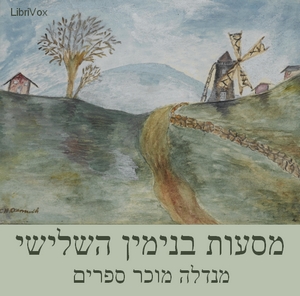
Mendele Mocher Sforim (Literary name for Shalom Jacob Abramovitsch) (1835 - 1917, b. Kapulye, Belorussia), one of the first modern Jewish writers, wrote in both Hebrew and Yiddish throughout his career. In his work he described with sharp satirical criticism the traditional life in small Jewish towns, as well as tendencies for assimilation of learned Jews at the time. He was regarded as the "grandfather of Yiddish literature" but the Hebraic-Zionist atmosphere in Odessa influenced him, and in 1886 he turned to writing Hebrew fiction. The hero of "The Travels of Benjamin the III" is a fool in a town full of poor Jews who barely manage to keep themselves alive. Benjamin is struck suddenly by a desire to travel, and joined by Sendrel he sets out to find a Jewish kingdom mentioned in legends of the Ten Lost Tribes. They hardly make it around the block. Barely escaping from their own wives, the two travel only as far as nearby towns. As the novel progresses they fall into the hands of Jewish kidnappers, who take advantage of their naiveté to sell them into the czarist army. They are caught when they try to escape, and the army’s response to this treason is a delicious twist that leaves the reader wondering who exactly is insane – and where precisely the line is drawn between an absurdity and a worthwhile dream. (Summary by Omri Lernau)
12 episodes
The novel tells the story of Agnes Grey, the daughter of a minister, whose family comes to financial ruin. Desperate to earn the money to care for herself, she takes one of the few jobs allowed to respectable women in the early Victorian era – the role of governess to the children of the wealthy. In working with two different families (the Bloomfields and the Murrays), she comes to learn about the troubles that face a young woman who must try to rein in unruly, spoiled children for a living, and about the ability of wealth and status to destroy social values. After her father's death, Agnes opens a small school with her mother and finds happiness with a man who loves her for herself. They have three children at the end of the novel, Edward, Agnes and Mary (Wikipedia)
25 episodes
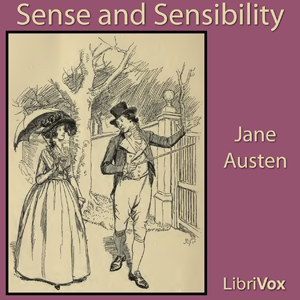
This is a story of the English moneyed class and its eternal struggle for creating “sense and sensibility” in its world. A potential marriage prospect must make “sense” by bringing with it enough assets and income to permit the couple to continue to live in happy, idle leisure, complete with servants and a prestigious address. Provided one can find such a match among the eligible persons of the opposite sex, one then hopes for “sensibility”, or capacity for emotion, so that if love is not immediately to hand, it might come around later. And while these gentlemen and ladies make their hopeful pirouettes in the social eye, they must of course adhere to all the forms of civility.
Jane Austen writes of the family of a gentleman named Dashwood who dies and leaves most of his fortune to his son, with the understanding that he will “look out for” his mother and three sisters. When that son marries a grasping woman who convinces him that his sisters’ funds are suitable to their needs and so require no contributions from his inherited fortune, the sisters are left to play the game of “Sense and Sensibility” in earnest.
But all’s not fair in love. Carefully prepared “attachments” can and do go awry when gentlemen find other young women of greater fortunes than the Dashwood sisters. So, will they marry for love? Or money? Or perhaps, not at all?
(Summary by Mark F. Smith)
50 episodes
The Mayor of Casterbridge (1886) is a tragic novel by English author Thomas Hardy subtitled, "The Life and Death of a Man of Character". It is set in the fictional town of Casterbridge (based on the town of Dorchester in Dorset). The book is one of Hardy's Wessex novels, all set in a fictional rustic England. (Wikipedia)
A poor, disgruntled, drunken young man sells his wife and child to the highest bidder. When he awakens, sober, the next day he regrets his rash act and vows to give up drink and find his family and bring them home. Eventually he is forced to give up the search and move on with his life. He does this quite successfully until, nearly 20 years later, his past comes back to haunt him. (DebraLynn)
45 episodes

Mendele Mocher Sforim (Literary name for Shalom Jacob Abramovitsch) (1835 - 1917, b. Kapulye, Belorussia), one of the first modern Jewish writers, wrote in both Hebrew and Yiddish throughout his career. In his work he described with sharp satirical criticism the traditional life in small Jewish towns, as well as tendencies for assimilation of learned Jews at the time. He was regarded as the "grandfather of Yiddish literature," but the Hebraic-Zionist atmosphere in Odessa influenced him, and in 1886 he turned to writing Hebrew fiction.The Book of Beggars, or Fishke the Lame, was one of the first romances written in Hebrew in Eastern Europe. It was published in Yiddish in 1869 and later translated into Hebrew by the author. Mendeli used a satirical style mixed with tears and compassion to describe Jews of the lowest classes in small poor communities in Eastern Europe of the second half of the 19th century, organized to look for food and charity. This was the background for an entangled story of theft, rape and sentimental love, with an emphasis on suffering and hardships of women. (Summary by Omri Lernau)
28 episodes

The Pioneers: The Sources of the Susquehanna; a Descriptive Tale is one of the Leatherstocking Tales, a series of five novels by American writer James Fenimore Cooper. The Pioneers was first of these books to be published (1823), but the period of time covered by the book (principally 1793) makes it the fourth chronologically. (The others are The Deerslayer, The Last of the Mohicans, The Pathfinder, and The Prairie.)The story takes place on the rapidly advancing frontier of New York State and features a middle-aged Leatherstocking (Natty Bumppo), Judge Marmaduke Temple of Templeton, whose life parallels that of the author's father Judge William Cooper, and Elizabeth (the author Susan Cooper), of Cooperstown. The story begins with an argument between the Judge and the Leatherstocking over who killed a buck, and as Cooper reviews many of the changes to his fictional Lake Otsego, questions of environmental stewardship, conservation, and use prevail. The plot develops as the Leatherstocking and Chingachgook begin to compete with the Temples for the loyalties of a young visitor, Oliver Effingham. For all its strange twists and turns, 'The Pioneers' may be considered one of the first ecological novels in the United States. (Summary from Wikipedia)
Dedicated Proof-Listeners: Annise, Mickey Reno
42 episodes
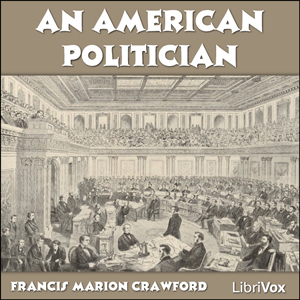
In 1880’s Boston, Mass. the good life is lead according to all the Victorian era societal rules of the New World. Political ambitions and the business of making money go hand in hand. A Senate seat suddenly opens up due to the current junior senator’s unexpected death, and the political machinations to fill the seat begin. Senatorial candidate John Harrington is a young idealist who thinks that fighting for truth and justice, regardless of political affiliation, is the way. But he is told he can’t possibly win because he isn’t partisan enough. His opponents in the iron mine, railroad and shipping business sabotage his first bid for office, because he wants to do away with protectionism in trade to open up global competition. He eventually succeeds in winning a Senate seat. He gives a rousing speech to Congress as they gather to elect a President in a race which has ended in a three way tie. His message is that blindly following a party’s positions and principles is not being free and independent, and will not always lead to the best person being elected, or to the best decisions being made for the country as a whole. (Summary written by Maire Rhode)
23 episodes

Peter Schlemihl lernt den reichen Kaufmann Thomas John kennen, in dessen Garten er einem eigenartigen grauen Herrn begegnet. Dieser überredet ihn dazu, seinen Schatten für ein Säckel voller Gold zu verkaufen, der wie ein Füllhorn nie versiegt. Sobald die Menschen aber bemerken, dass er keinen Schatten hat, fürchten sie sich und meiden ihn. Als er sich in die schöne Mina wird sein Geheimnis von einem seiner Diener verraten. Nur wenn er seinen Schatten zurück bekommt, erklärt ihm Minas Vater, darf er die Tochter heiraten. Da erscheint der graue Mann wieder und seine wahre Natur offenbart sich: Er ist der Teufel. Dieser ist nur bereit, den Schatten zurückzugeben, wenn Schlemihl ihm dafür seine Seele überlässt.
Adelbert von Chamisso war Botaniker, Forschungsreisender, Direktor des Herbariums am Botanischen Garten Berlin und Dichter. Obwohl Französisch seine Muttersprache war, gelang es ihm, in der deutschen Fremdsprache unsterbliche Werke zu schaffen. Mit dem Adelbert-von-Chamisso-Preis werden seit 1985 in Deutschland Autorinnen und Autoren nichtdeutscher Muttersprache ausgezeichnet. (Summary by Wikipedia und Hokuspokus)
11 episodes
Un brillant notaire parisien, Alfred L'Ambert, épris d’une danseuse de ballet de quatorze ans est provoqué en duel par son rival turc après une altercation. Ayant perdu son nez au cours du duel, le notaire se tourne alors vers un chirurgien pour une greffe de peau. Le donneur est un auvergnat simple du nom de « Chébachtien Romagné ». Le notaire doit passer trente jours le visage collé contre le bras de l’auvergnat. Mais, une fois ce délai écoulé, il n’en est pas au bout de ses peines... A successful Parisian notary, Alfred L’Ambert, is smitten with a fourteen years old ballett dancer. After a quarrel, his Turkish rival challenges him to a duel during which the notary gets his nose cut off. Thereupon, a surgeon is called for a grafting. The donor is a simple man from the Auvergne with whom the notary is forced to spend thirty days, his noze being literally glued to the arm of the man. But even after this term, his bad fortune doesn’t come to an end...(Summary by Didier)
6 episodes
This novel is subtitled The Mellstock Quire, A Rural Painting of the Dutch School. The Quire is the group of musicians who accompany the hymns at the local church and we follow the fortunes of one member, Dick Dewy, who falls in love with the new school mistress, Fancy Day. Another element of the book is the battle between the traditional musicians of the Quire and the local vicar, Parson Maybold, who installs a church organ. This battle illustrates the developing technology being introduced in the Victorian era and its threat to traditional country ways. The novel was published anonymously in 1872 and is often seen as Thomas Hardy's most gentle and pastoral novel. In 2005 Under the Greenwood Tree was adapted for a television version by Ashley Pharoah. (Summary by Rachel Lintern)
30 episodes
Contes de Provence, d'Algérie et de Corse. (par Naf)
25 episodes
C'est un roman historique, social et philosophique dans lequel on retrouve les idéaux du romantisme et ceux de Victor Hugo concernant la nature humaine. L'auteur lui-même accorde une grande importance à ce roman et écrit en mars 1862, à son éditeur Lacroix : « Ma conviction est que ce livre sera un des principaux sommets, sinon le principal, de mon œuvre ». Le tome I de l'œuvre qui en compte cinq est consacré à Fantine. (Source : Wikipedia)
70 episodes
C'est un roman historique, social et philosophique dans lequel on retrouve les idéaux du romantisme et ceux de Victor Hugo concernant la nature humaine. L'auteur lui-même accorde une grande importance à ce roman et écrit en mars 1862, à son éditeur Lacroix : « Ma conviction est que ce livre sera un des principaux sommets, sinon le principal, de mon œuvre ». Le tome II de l'œuvre qui en compte cinq est consacré à Cosette. (Source : Wikipedia)
76 episodes
Émile François Zola (French pronunciation: [emil zɔˈla]) (2 April 1840 – 29 September 1902) was an influential French writer, the most important exemplar of the literary school of naturalism. More than half of Zola’s novels were part of a set of twenty novels about a family under the Second Empire collectively known as Les Rougon-Macquart.L’Assommoir (1877) is the seventh novel in the series. Usually considered one of Zola’s masterpieces, the novel—a harsh and uncompromising study of alcoholism and poverty in the working-class districts of Paris—was a huge commercial success and established Zola’s fame and reputation throughout France and the world. (Summary edited from Wikipedia)
61 episodes
Last Days of Pompeii is a novel written by Edward Bulwer-Lytton in 1834. Once a very widely read book and now relatively neglected, it culminates in the cataclysmic destruction of the city of Pompeii by the eruption of Mount Vesuvius in 79 AD.The novel uses its characters to contrast the decadent culture of first-century Rome with both older cultures and coming trends. The protagonist, Glaucus, represents the Greeks who have been subordinated by Rome, and his nemesis Arbaces the still older culture of Egypt. Olinthus is the chief representative of the nascent Christian religion, which is presented favorably but not uncritically. (Summary from Wikipedia)
56 episodes
The title of the novella is almost an adequate summary in itself. The "boy-meets-girl-then-loses-her" story is universal but not, I think, banal - despite a surprise ending which notoriously turns out to be very little of a surprise. First Love is given its originality and poignancy by Turgenev's mastery of the piercing turning-point (akin to Joyce's "epiphanies") that transforms the character's whole being, making a tragic outcome inevitable. Even the nature symbolism is rescued from triteness by lovely poetic similes - e.g. "but at that point my attention was arrested by the appearance of a speckled woodpecker who busily climbed up the slender stem of a birch-tree and peeped out uneasily from behind it, first to the right, then to the left, like a musician behind the bass-viol." (Summary by Martin Geeson)
5 episodes
Wilhelm Meisters Lehrjahre ist ein klassischer Bildungsroman von Johann Wolfgang von Goethe. Der wegweisende Entwicklungsroman erschien 1795/96. Der Roman besteht aus acht Büchern. (Zusammenfassung von Wikipedia)
107 episodes
The Egoist is a tragicomical novel by George Meredith published in 1879. The novel recounts the story of self-absorbed Sir Willoughby Patterne and his attempts at marriage; jilted by his first bride-to-be, he vacillates between the sentimental Laetitia Dale and the strong-willed Clara Middleton. More importantly, the novel follows Clara's attempts to escape from her engagement to Sir Willoughby, who desires women to serve as a mirror for him and consequently cannot understand why she would not want to marry him. Thus, The Egoist dramatizes the difficulty contingent upon being a woman in Victorian society, when women's bodies and minds are trafficked between fathers and husbands to cement male bonds. (Summary from Wikipedia)
51 episodes
Wilhelm Meisters Wanderjahre oder die Entsagenden von Johann Wolfgang von Goethe (1749 - 1832)
Wilhelm Meisters Wanderjahre oder die Entsagenden ist ein Roman von Johann Wolfgang von Goethe. Er gilt als die persönlichste aller Goetheschen Dichtungen. 1821 erschien die erste Fassung, 1829 die vollständige. Ihr fehlen die vorangestellten Gedichte des Fragments von 1821.
(Zusammenfassung von Wikipedia)
68 episodes
Aunt Jane is a good and loving woman, important to everyone except herself, always willing to give good advice. Her "hero", Horace, is far different: in the beginning of the story, he is a good but a little unthoughtful youth. But at the end, his unthoughtfulness is replaced by his love to God. Beside Aunt Jane and her "hero", there is quite a large cast of other unforgettable characters who show us a lot of important things. (Summary by Stav Nisser.)
21 episodes
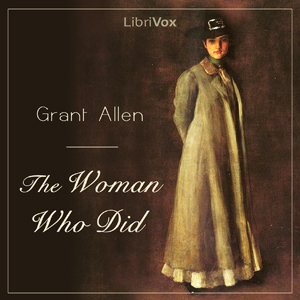
Most times, especially in the time when this book was written (1895), it is just as nature and society would wish: a man and woman "fall in love" and get married. But it is not so for Herminia Barton and Alan Merrick. They do indeed fall in love, but Herminia has a deeply held belief in freedom for women, and she holds immutable views against what she perceives as the slavery of marriage.
Alan unwillingly agrees to her strong wish to remain unmarried and to live together as "close and dear friends". When the birth of their child is imminent, they go to his beloved Italy to avoid the condemnation of English society.
From this point on, many questions are raised: is marriage indeed so important? Is strong will always good? Is it right to go against society? And if it is, when should we stop and consider the effects on other people? What should a child do when she is raised to be what her mother dreams and develops her own dreams in the process? And, finally, how much should parents sacrifice for their children? (Summary by Stav Nisser and Ruth Golding)
24 episodes
This novel, published in 1856, was one of the popular and beloved novels in the Victorian era. It is told in the first person by Phineas Fletcher, an invalid son of a Quaker tanner who is presented to us in the beginning as a lonely youth. John Halifax, the first friend he ever had, is a poor orphan who is taken in by his father to help in the work which his sickly son can't constantly do. Phineas tells us in an unforgettable way how John succeeded in rising from his humble beginning and become a wealthy and successful man. But with the money come horrible troubles... In an unforgettable manner, we learn to know all the characters of the novel as if they really lived. (Summary by Stav Nisser)Coordinated by Stav Nisser & Patti Cunningham
40 episodes
The Autobiography of Cockney Tom, Showing his Struggles through Life,and proving this Truth of the Old Saying
"that Honesty is the best Policy". Set in England, South Australia and the goldfields of Victoria Australia in the 1800's. (Summary from the book and Richard Schipper)This project was proof listened by Ann Boulais and Betty.
9 episodes
In his startling and tragic novella Farewell (‘Adieu’), Balzac adds to the 19th century’s literature of the hysterical woman: sequestered, confined in her madness; mute, or eerily chanting in her moated grange. The first Mrs Rochester lurks in the wings; the Lady of Shalott waits for the shadowy reflection of the world outside to shatter her illusion. Freud’s earliest patients will soon enter the waiting-room in their turn.
Whilst out hunting two friends come across a strange waif-like woman shut up in a decaying chateau which one of them dubs “the Palace of the Sleeping Beauty”. Soon we are dragged back to the terrible masculine reality of the 1812 retreat of Napoleon’s army from Moscow and the grotesque massacre that was to traumatise the heroine, parting her from her lover.
Their reunion is more desperate still, as the earlier event is recreated in a bizarre and vain attempt to root out madness and compel the return of happiness…
(Summary by Martin Geeson)
8 episodes
Listeners who like to plunge straight into a story would do well to skip the lengthy preamble. Here, Balzac the virtuoso satirist depicts the levels of Parisian society as a version of the Inferno of Dante - but perhaps keeps the reader waiting too long for the first act of his operatic extravaganza.Our beautiful, androgynous hero, Henri de Marsay, is one of the bastard offspring of a depraved Regency milord and himself practises the cynical arts of the libertine. His quarry is the exotic Paquita Valdes, she of the golden eyes.But there is a mysterious third person in this liaison...The shocking truth of their interrelationships marks this out at once as one of those French novels that Lady Bracknell would instantly ban from the house. (Summary by Martin Geeson)
11 episodes
Kate Chopin's 1899 novella The Awakening is about the personal, sexual, and artistic awakening of a young wife and mother, Edna Pontellier. While on vacation at Grand Isle, an island in the Gulf of Mexico, Edna befriends the talented pianist Mlle. Reisz and the sympathetic Robert Lebrun, both of whom will influence her startling life choices. Chopin's novel created a scandal upon its original publication and effectively destroyed her writing career. Now, however, it is considered one of the finest American novels of the 19th century. (Summary by Elizabeth Klett)
8 episodes
The Woodlanders is one of Hardy's later novels, although he originally intended it as a successor to Far From The Madding Crowd. It concerns the life and loves of Giles Winterborne, Grace Melbury, Edred Fitzpiers, Felice Charmond and Marty South. The topics of class, fidelity and loyalty are dealt with in Hardy's exquisite style and set in the beautiful woodlands of Hintock (T.Hynes)
48 episodes
A collection of twelve short stories featuring Conan Doyle's legendary detective, originally published as single stories in Strand Magazine and subsequently collected into a single volume.There is not always a crime committed nor a culprit to find, and when there is, Holmes does not invariably get his man. However, his extraordinary powers of deduction generally solve the mystery, often to the discomfiture of the official police force. Holmes is a man of many facets, and I do not share the common perception of Holmes as cold and humourless: his sense of fun can be sparkling, and there are moments of rare pathos. (Summary by Ruth Golding)
24 episodes
"Het testament van mevrouw De Tonnette" is een moderne romantische komedie - althans, modern voor het jaar 1882, waarin het verscheen. Mevrouw De Tonnette is een rijke, ongetrouwde, oude dame. Zij maakt, in het geheim, een nieuw testament, waarin ze al haar geld nalaat aan een arm achternichtje, Lina Ochten. Er is wel een voorwaarde: Lina moet getrouwd zijn op het moment dat het testament in werking treedt.
De twee neven van de oude dame, de ijdele hoofdambtenaar Pieter Botwater en de flamboyante musicus Anasthase van Sterren, zijn er altijd van uit gegaan dat zij het fortuin samen zouden erven. Als ze bij toeval te weten komen van het nieuwe testament zijn ze woedend, en beramen ze ieder voor zich een plan. Lina Ochten, die van niets weet, is ondertussen voor een vakantie afgereisd naar het Zwarte Woud, met een stel kennissen. Pieter en Anasthase reizen haar in het geheim achterna, zonder dat ze het van elkaar weten, ieder vastberaden om Lina ten huwelijk te vragen.
19 episodes
Ill feelings exist between the Meadowcroft sons and John Jago, the foreman of the Meadowcroft estate. Then, John Jago disappears, and a body is found in a kiln. The Meadowcroft brothers stand accused of the crime, but are they guilty? The Dead Alive is a novel written by Wilkie Collins based on the true-life Boorn Brothers murder conviction case of 1819. Jesse and Stephen Boorn were sentenced to death for the murder of their brother-in-law, but were they wrongly convicted? (Summary by M Z Spark, Phil, and Barry)
12 episodes
Orley Farm is Trollope at his best (as good as the Barsetshire series), which means some of the best characterizations in the English language. Trollope's people are real; the beleaguered Lady Mason, charged with forging a will; the aged lover Sir Peregrine Orme; Madeleine Stavely, deeply but practically in love; the shallow, fickle Sophia Furnival and others are 3-dimensional figures that live and breathe. His satire of the so-called "justice" system is the best kind of satire: he just describes the court proceedings as they really are. The result is as up-to-date as today's newspaper. (Introduction by Leonard Wilson)
80 episodes

1843 verfasste Dickens den Roman A Christmas Carol (deutscher Titel: Eine Weihnachtsgeschichte) in der Absicht, die Aufmerksamkeit des Lesers auf die Not der Armen in der Gesellschaft Englands zu lenken. Am 19. Dezember 1843 wurde das Werk mit Illustrationen von John Leech veröffentlicht.
Der herzlose Geschäftemacher Ebenezer Scrooge wandelt sich zu einem gütigen, die Not der Menschen lindernden alten Herren. Dickens bedient sich hierfür der Mittel der Groteske: Am Heiligen Abend erscheint dem alten Geizhals der Geist seines verstorbenen Geschäftspartners Marley, der zu Lebzeiten noch geiziger als Scrooge war, und prophezeit Scrooge ein düsteres Ende für den Fall, dass er sein Leben nicht grundlegend ändere. Danach zeigt sich der Geist der vergangenen Weihnacht, welcher Scrooge in seine Kindheit zurückversetzt, gefolgt vom Geist der gegenwärtigen Weihnacht, der ihn ins Haus seines ärmlich lebenden Schreibers Cratchit und dessen Familie sowie in das Haus seines Neffen geleitet. Der Geist der künftigen Weihnacht schließlich führt ihn zu seinem einsamen Sterbebett und zeigt ihm seinen Grabstein. „Die Wege der Menschen deuten ein bestimmtes Ende voraus, auf das sie hinführen, wenn man auf ihnen beharrt. Aber wenn man von den Wegen abweicht, ändert sich auch das Ende“, erkennt Scrooge, läutert sich und wird fortan zu einem anderen Menschen. (Zusammenfassung von Wikipedia)
10 episodes
The Chimes: A Goblin Story of Some Bells that Rang an Old Year Out and a New Year In is the second of Charles Dickens' Christmas books, published in 1844. Its contemporary setting is the "Hungry Forties", a time of social and political unrest, and the book has a strong moral message. It remained popular for many years, although its fame has since been eclipsed by that of A Christmas Carol, the first of the series. Our hero Toby ("Trotty") Veck is a poor but hard-working man, whose beloved daughter Meg is due to marry on New Year's Day. Trotty, who is appalled by newspaper reports of crime and immorality, is further depressed by his encounters with the rich and influential Alderman Cute and Sir Joseph Bowley, who make him feel that the poor have no right to exist in society, and his daughter has no right to marry. Trotty hears messages in the chimes of the church bells, which lead him to visit the belfry at night on New Year's Eve... (Introduction by Ruth Golding)
4 episodes
